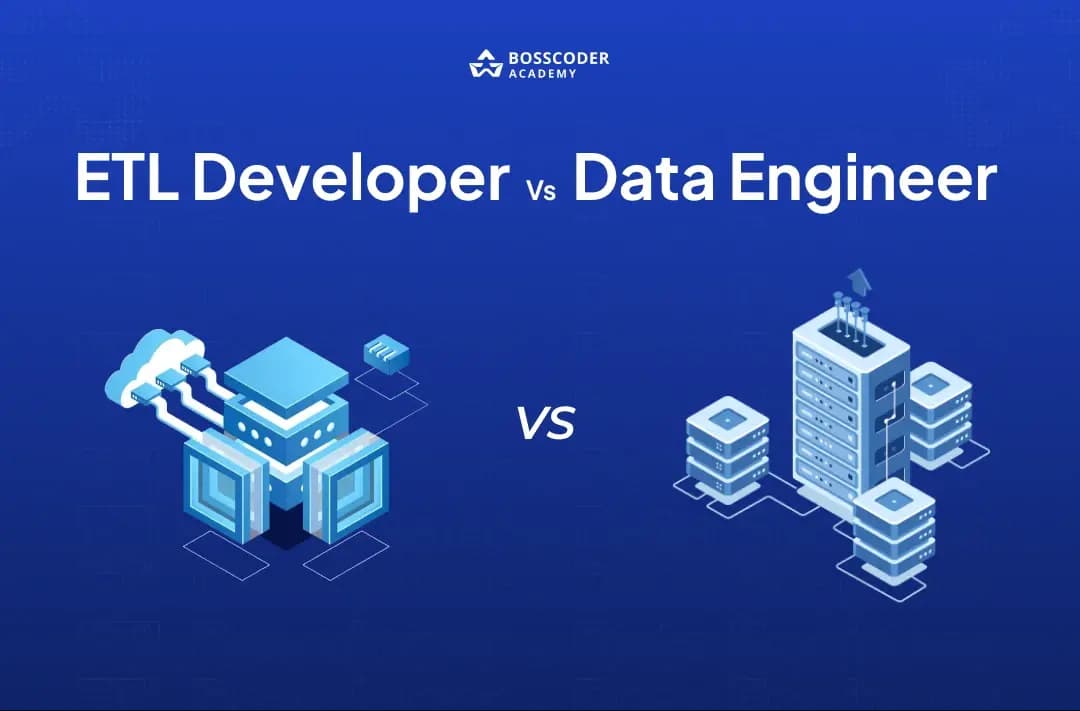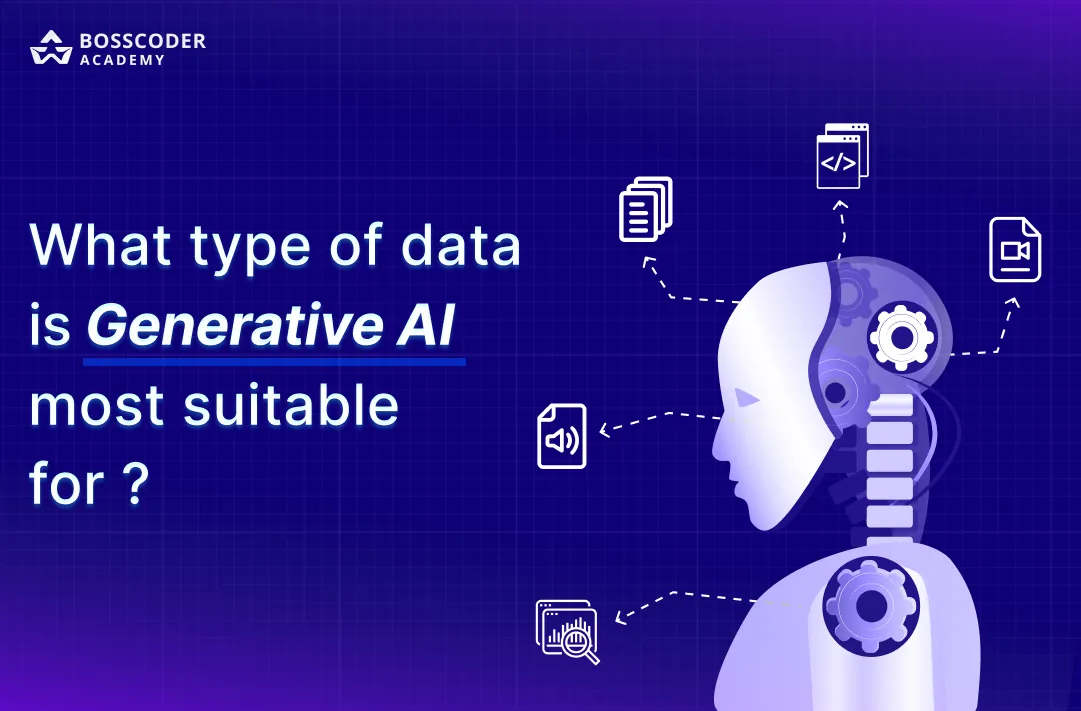Introduction
As the demand for skilled professionals in data management and analytics skyrockets, two pivotal roles stand out: ETL Developer and Data Engineer.
On some levels, they are similar, but fundamentally, defined by their scope, skills, and career paths, they are cemented as inherently distinct from one another.
Therefore, the choice of the field of study depends on the interest, goal, and type of change required in the data world. In this article discusses the differences and provides tips to assist you in making that decision.
What Does ETL Developer Do?
An ETL Developer focuses on the ETL processes of extracting data from multiple sources and transforming it to fit into a centralized warehouse. Here’s a closer look at their responsibilities:
- Data Integration: The processes of converting raw data into a form fit for use in databases or warehouses.
- ETL Tools: Informed on Informatica, Talend, Apache Nifi, Microsoft SSIS and other related tools.
- Data Quality and Governance: The ability to ensure that information is accurate, complete, consistent, valid, and timely throughout the life cycle of that information.
Actually, ETL Developers may be involved into BI projects to guarantee that the structures of well-ordered data flows correspond to reporting and analytics.
What Does a Data Engineer Do?
Data Engineer is a specialist in methods and systems associated with structuring data, preparing data for analysis, and providing tools for data analysis. Their responsibilities include:
- Scalable Data Pipelines: Creating ways and means of managing structured as well as unstructured data effectively.
- Programming & Big Data Frameworks: Knowledge of Python, Java, or Scala languages and Apache Spark, Hadoop, or Kafka tools.
- Cloud Platforms and Databases: Familiar with cloud environments, including AWS, Azure or Google Cloud, and databases including MongoDB, Cassandra and Snowflake.
Data Engineers are involved in data stream processing, machine learning processes, external databases, and more.
Key Differences Between an ETL Developer and a Data Engineer

Which Career Is Preferred?
1. Careers, Goals, and Interests
Like working with structured data, tools on business intelligence guarantee the quality of such data. Perfect for an ETL Developer, which will be an ETL Developer’s job.
If you are particularly interested in programming, cloud technologies, or big data ecosystems, becoming a Data Engineer offers career opportunities in a much broader and exciting plane.
2. Industry Demand
Data Engineers are now more valued within industries, and even more so within machine learning, real-time analytics, and big data industries. While ETL Developers are critical for BI and data warehousing projects, the career field can be even more specialized than Data engineering.
3. Learning Curve
In general, the ETL developer is some entrance point into the area of data, which may to a certain extent reduce the role of the programmer.
Data engineering roles require a higher level of learning due to the higher technical skills requiring technical expertise. However, the potential is also potentially greater.
Kick-start your Data Career with Bosscoder Academy! Master essential tools and methods that get you ready to excel in your career.
The Overlap Between ETL Developers and Data Engineers
Similar Goals: Both roles are involved with data pipelines, which may involve how data flows through systems, with particular emphasis placed on correct structured dataset for consumption.
Data Integration: Both extract, clean, transform, and load data into centralized systems, though they use different tools:
- ETL Developers use tools like Informatica, SSIS.
- Data Engineers use frameworks like Apache Airflow, Spark.
Complementary Roles:
- ETL Developers focus on data transformation and quality.
- Data Engineers design the data infrastructure and pipelines.
Shared Effort: Both roles must function cohesively in order to provide accurate and stable data for things like customer behavior analytics for business intelligence.
What Skills Do You Need for Each Role?
Skills for ETL Developers:
- Knowledge of ETL tools like Talend, Informatica and Microsoft SSIS.
- Knowledge of SQL for querying and transforming data
- Data modelling to understand these so we can design the relational database correctly and properly.
Skills for Data Engineers:
- Programming skills in languages such as Python, Scala or Java for the custom pipeline creation.
- Some familiarity with large data framework such as Apache Hadoop and Spark.
- Understanding of how to build cloud based data pipelines on cloud platforms like AWS, Google Cloud or Azure.
- Ability of designing scalable systems that can efficiently process huge datasets.
Here’s a quick comparison of Skills for Each Role:

Conclusion
ETL developers and data engineers are needed parts of the data ecosystem, but that mostly depends on your interests and aspirations. If you wish to hone your focus in a specialized role that has to handle two core parts of data integration and transformation, you could very well choose to fit into an ETL developer profile. However, if you are looking for a career which is versatile and will be future-proof covering everything under the sun, then Data Engineering is the better choice.
This data world is a huge learning world, with everything ever-changing at a very fast pace. Whatever position you decide, investing towards trending skills will definitely yield you a profitable and impactful career.
Ready to upgrade your skills? Learn to master data for free with Bosscoder Academy!
FAQs
1. What does an ETL Developer do that a Data Engineer does not?
ETL Developers are specifically dedicated to ETL – extract, transform, load data into data warehouses and Data Engineers are designing the growing data pipelines and systems for data management. Data Engineers are more generalized and compared to data analysts, they are familiar with cloud platforms, programming languages, Apache Spark, and Hadoop.
2. Which career has a better salary: Should I be an ETL Developer or a Data Engineer?
Data Engineers are paid comparatively better than ETL Developers in view of the fact that Data Engineers are expected to work with cloud platforms, big data frameworks and distributed systems. This increased importance of Data Engineers, especially in fields of AI and machine learning, helps drive their higher pay.
3. Should one choose to be an ETL Developer or a Data Engineer in the year 2025?
Whether you want to be an ETL Developer or Data Engineer is subjective to your goals in the job industry. If you have passion of working with data transformation tools and data integration tools, then the ETL Developer is right for you. Arguably, people who got more chances for career advancements and job offers in 2025, are the ones who choose Data Engineering over Data Science because programming, cloud technologies, and big data systems are more engaging.
4. What skills are important in order to become an ETL Developer or a Data Engineer?
To perform ETL Developer job you should possess the necessary knowledge about ETL tools such as Informatica, SQL and data governance. The Data Engineer needs to have programming language skills such as Python, Java or Scala, tools or technologies like Apache Spark, Hadoop and cloud, including AWS, Azure, or Google Cloud.
5. Which role is in higher demand: ETL Developer or Data Engineer?
Data engineers have become more wanted due to the fact that they create data pipelines, integrate with large data sets and are involved with machine learning as well as real time data offerings. Even though ETL Developers are critical for data warehousing and business intelligence, the need for the Data Engineers is rising much higher since businesses are moving to the cloud solutions and incorporating deep analytics.









